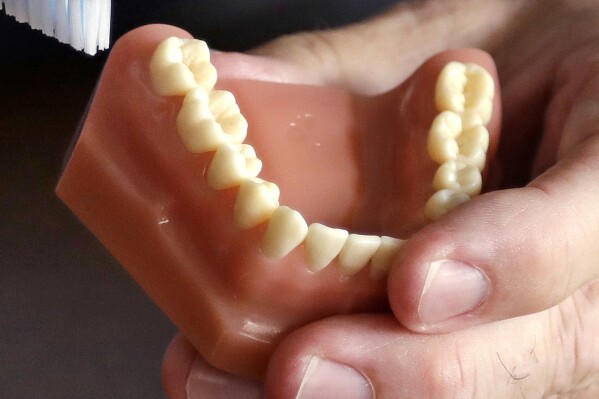LONDON (AP), Social media users from the European Union soon will have a new platform to challenge decisions made by platforms about whether to remove videos and posts that violate their rules, or to leave others up.
The Appeals Center Europe, a “out-of-court dispute settlement body”, announced Tuesday that it had been certified by Irish regulators as a referee in content moderation disputes throughout the 27-nation EU. Cases involving Facebook YouTube and TikTok are the first to be heard.
The center is similar in nature to Meta’s Oversight Board. This quasi-independent body was established in 2020 and acts as a supreme tribunal for difficult decisions regarding content moderation on Facebook, Instagram, and Threads submitted by people around the world.
According to the EU’s Digital Services Act (DSA), tech companies and social media platforms must work with dispute resolution bodies and adhere to any decisions made by them. EU officials in Brussels were looking for a way for EU citizens to challenge decisions made by Big Tech firms, while also balancing the right to free expression against the goal to curb online risks.
Thomas Hughes, CEO of the center, said that it will receive appeals from users and groups in the EU regarding “everything from hate speech and violence to bullying and harassment.”
Hughes said that it could be anything from a dispute between neighbors to a case involving a state head.
The Digital Services Act is an extensive set of regulations that require tech and social media firms operating in Europe, to clean up their platforms or face heavy fines.
The Appeals Center in Dublin, where many Silicon Valley companies have their European headquarters is set to begin hearing complaints before the end of this year. It will initially deal with Facebook, YouTube, and TikTok because it wants to start with the largest platforms. Later, other platforms can be added. The Oversight Board can choose the most important and significant cases, but the Center will have to decide on each case.
The Oversight Board makes both binding decisions and non-binding recommendations. For example, it has issued guidance on Meta’s policy on non-consensual “deepfakes” after reviewing a case that involved two women who had posted deepfake images.
The Appeals Center, on the other hand, will only decide if content, such as a photo, video or post, violates the rules of each platform.
Hughes said that the center would hire staff from all over the EU to deal with what he estimated could be tens of thousand cases per year. The staff will be experts in specific regions, language and policy areas.
Hughes, who previously served as the Oversight Board director, announced that Meta’s Oversight Board will provide 15 million euros ($16.5m) in startup funding. Hughes added that both bodies will work separately, but “point in the right direction” in terms of platform transparency and accountability, user rights and applying a human-rights framework to online speech.
The Appeals Center’s operations will be funded by charging tech companies 95 euro for each case it hears. Users who raise disputes will also have to pay a 5 euro fee. Hughes said that this “nominal fee” is to prevent people from “gaming” or abusing the system. It will be refunded in the event of a win.
The decisions are not final, but users can still get their money if the center decides in their favor, regardless of what the platform does.
He said that although there is a 90-day deadline, decisions are usually made much faster.
___
Barbara Ortutay, a writer for the Associated Press in San Francisco, contributed to this report.
Read More @ apnews.com













